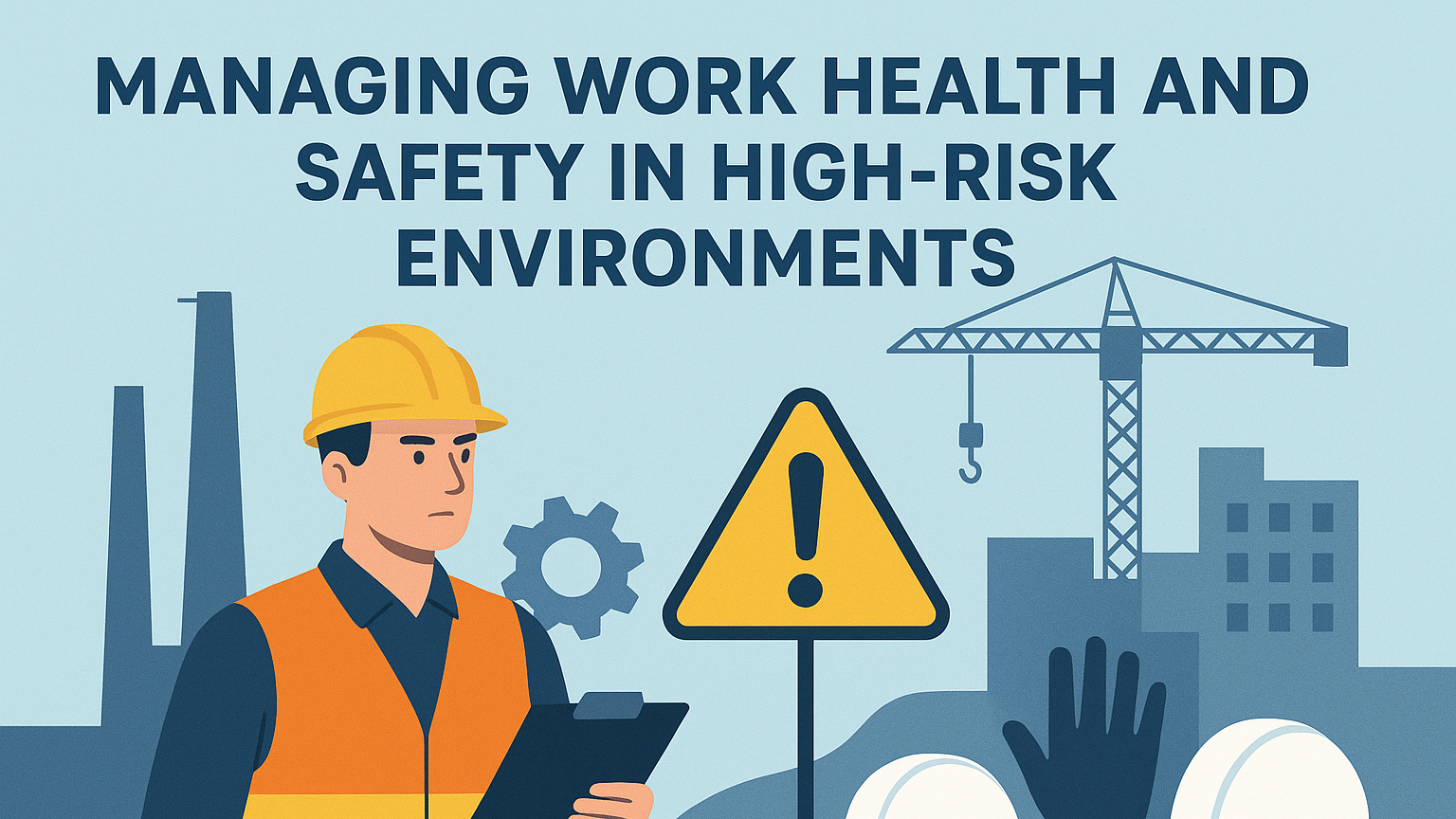Work Health and Safety
Work Health and Safety (WHS) is a critical concern for all Persons Conducting a Business or Undertaking (PCBU). Care must be taken to ensure that your organisation is equipped to mitigate or eliminate risks. For those operating in high-risk environments, the nature of work and the environment present unique challenges and responsibilities.
A workplace may be considered a high-risk environment when the nature of the tasks or individuals involved presents a heightened potential for injury or harm, both physically and psychologically. For example, organisations operating in the education and care sectors will face increased risk in respect of vulnerable children or clients they serve.
This article focuses on the obligations in NSW under the Work Health and Safety Act 2011 (NSW) and the Work Health and Safety Regulation 2025 (NSW). Similar frameworks operate across Australia, making the practical guidance applicable nationwide.
Primary Duty of Care
Every PCBU must ensure, so far as is reasonably practicable, the health and safety of all workers. This extends to employees, contractors, volunteers, and anyone else carrying out work.
What is ‘reasonably practicable’ will be different in each workplace. Consequently, every PCBU must assess how to ensure the health and safety of all workers, considering the particular circumstances of its workplace. What is reasonable in one organisation may not be in another, especially when considering certain risks specific to the workplace or sector.
Duty to Consult
To identify potential hazards and risks within a workplace, a PCBU has a responsibility to directly engage with its workers. Direct engagement is essential for accurately identifying current and ongoing risks and hazards. This approach allows employers to design management plans with input from workers.
Genuine engagement in these processes not only helps identify risks but also fosters a stronger connection between the PCBU and its workers regarding any risk management plans developed collaboratively. Consultation involves sharing information, listening to workers’ perspectives, considering their feedback, and keeping them informed about decisions that impact their health and safety.
Risk Management
Managing risks is a process required by law. Following these steps helps ensure you meet your WHS obligations:
-
Identifying Hazards
Identify and address potential hazards before they cause harm. Conduct routine inspections and engage directly with workers to uncover risks that might otherwise go unnoticed.
-
Assessing Risks
A risk assessment is necessary when it is unclear how a hazard may cause harm or when multiple hazards are present. Risk assessments help reduce uncertainty about how these hazards could potentially harm workers.
-
Controlling Risks
PCBU’s should strive to eliminate risks whenever possible. If elimination is not practical, they should minimise risks through safer alternatives. Administrative controls are particularly effective for reducing WHS concerns in high-risk environments. These controls involve implementing specific procedures designed to minimise exposure to hazards. Examples of administrative controls include:
- Regular training and professional development to prepare workers.
- Procedures for de-escalating high-risk situations that may arise.
- Daily debrief sessions to discuss any issues encountered during the day and how to address them.
- An employee assistance program to help mitigate psycho-social hazards.
- Strict enforcement of WHS standards and procedures, with clear accountability measures for all workers.
-
Maintaining and Reviewing Controls
Regularly check that your risk controls are effective and update them as necessary. Gathering information about the nature and frequency of incidents or issues can help identify risk areas that may not have been previously considered or that may need additional or revised control measures.
Addressing WHS concerns proactively is essential. Waiting for an incident to occur can leave your organisation vulnerable to serious consequences, including potential prosecutions by regulators, which could lead to significant fines, workers’ compensation claims, and even litigation. Taking prompt action and seeking advice when issues arise can help protect both your workers and your organisation.
Need assistance?
Integroe Partners offers comprehensive workplace solutions for WHS, including legal advice on WHS obligations, detailed organisational reviews, development of WHS frameworks, and delivery of professional training to support awareness and compliance.
To discuss your organisation’s WHS, or for tailored advice on workplace compliance, please contact our team at (02) 9181 5001 or email us at [email protected].
Explore our full expertise here: https://integroe.com.au/legal-services/

